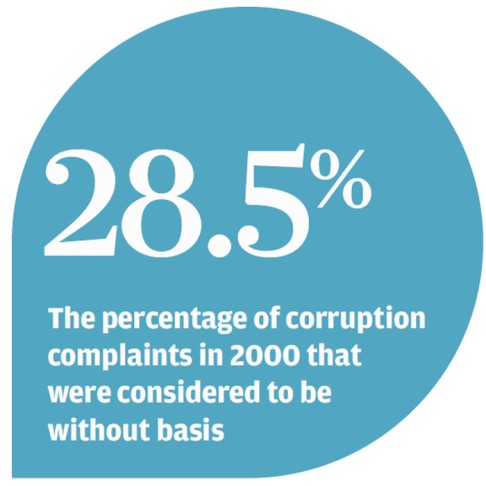Up to 3 in 10 complaints to ICAC deemed too weak for further action
Corruption complaints that are deemed "pursuable" - excluding election-related cases - account for 70 per cent to 80 per cent of all reports the ICAC receives every year, a review of its annual reports for the years 2000 to 2011 shows.

As many as three in 10 corruption reports lodged with the Independent Commission Against Corruption lack substance and are not followed up, according to ICAC figures.

In 2011, some 23 per cent of the complaints were classified as non-pursuable, the same as in 2010 and up on the 21 per cent in 2009. The figure was 28.5 per cent in 2000.
There have been concerns that the agency has morphed into a political tool for groups or individuals who deliberately publicise their complaints to graft-busters - however frivolous - to inflict political and personal damage on opponents.
Former deputy commissioner Tony Kwok Man-wai has previously told of politically motivated complainants using the ICAC to taint their opponents.
Whether this practice has affected the number of non-pursuable cases is not yet clear. The breakdown for last year - which saw a flurry of "political complaints" timed around the elections for chief executive and the Legislative Council - will not be released until around July, although the total number of corruption reports is known: 3,731.
